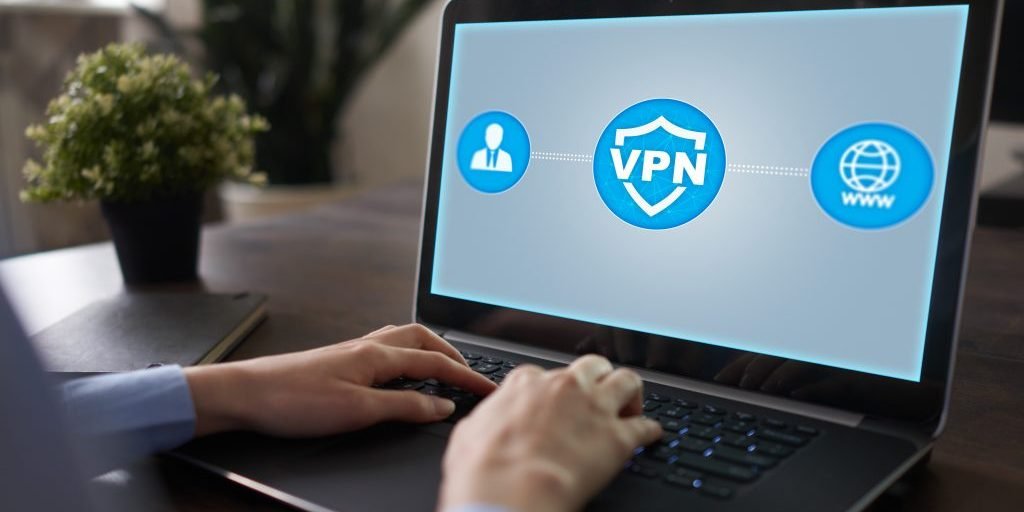Why Law Firms Need to Use VPNs
BY Virginia Mayo

LISTEN
Lawyers are bound to keep the confidences of their clients. Lawyers carry sensitive information on their computers and their mobile devices. Having information fall into the wrong hands could harm the attorney-client relationship, expose trial strategies of the law firm, threaten the financial existence of the firm, and subject the firm to a malpractice suit. To protect itself, a law firm needs a Virtual Private Network (VPN). Law firms should consider their particular needs when choosing the right VPN.
What is a VPN?
A VPN is just what its name implies – a private network. When a lawyer uses a public network, they run the risk that someone will access their data. The VPN reroutes the user's internet activity, so the user's identity and location cannot be tracked. A VPN encrypts the user's internet activity. It keeps the user from becoming the victim of a cyberattack and hackers from accessing the user's data.
How a law firm benefits from a VPN
A VPN allows a law firm to protect clients' confidences while transferring and storing the data it needs to keep a competitive advantage. The VPN meets three essential concerns of a law firm:
- Privacy and security: Public internet networks are unprotected. A hacker can gain access to the user's data and passwords. The confidences of a law firm's client can be compromised, or the law firm can become a victim to ransomware. Ransomware prevents the user from accessing their system unless they pay a ransom. A VPN protects the user's privacy and provides essential security.
- Encryption: A law firm does not have to sacrifice the convenience of sending documents via email for fear that someone will intercept the information. Law firm employees encrypt sensitive documents, such as medical records. The encryption scrambles the data, so, if it is intercepted, the interceptor cannot read it. The employee transfers the decryption key, which makes the document readable, in another document. A VPN encrypts all data by default when sent and decrypts it upon receipt.
- Anonymity: A VPN gives the user of the internet some anonymity. It masks the location the user is trying to access the internet from. Your VPN routes internet traffic through a different server in a different country. Someone trying to track online activity sees only the pseudo-location allotted to the user.
Choosing the right VPN for your law firm
Not all VPNs are the same. What is right for your firm depends on the firm's needs and expectations. Having a VPN with a variety of protocols helps bypass censorship and eliminates VPN blocks, among other things. Some VPNs use zero logs, which means none of the firm's sensitive data regarding the user's connection or bandwidth is collected, stored or shared. Connectivity speed is important, whether the user is capturing data on a smartphone or downloading a large document on a desktop computer.
The price of a VPN varies. Premium VPNs are expensive but offer the best level of performance and security. Budget VPNs are cheaper but may give a small firm what it needs. Free VPNs are available but may have restrictions and/or security risks.
Here's a look at some VPNs:
- BullGuard: BullGuard has military-grade encryption and a no-logging policy. Users get six connections with one account. It works with Windows, MacOS, Android and iOS. It costs $144 per year for six months, $85 per year for one year, or $68 per year for two years.
- ExpressVPN: ExpressVPN has one of the fastest speeds and extras such as 256-bit AES, DNS/IPv6 leak protection, kill switch and split tunneling. It works with Mac, Windows, Android, iOS, Linux and routers. It keeps no connection or activity logs. It costs $12.95 per month for one month, $9.99 per month for six months, or $6.67 per month for 15 months.
- NordVPN: NordVPN has a strict no-logs policy and military-grade encryption. It has over 5,000 servers in 60 countries. The user can connect up to six devices with one account. It works for Windows, MacOS, iOS, Android and Linux. It costs $11.95 per month, $6.99 per month for one year, $3.99 per month for two years, or $2.99 per month for three years.
- Perimeter 81: Perimeter 81 automatically activates VPN protection when lawyers or employees connect to unknown, untrusted networks. It has 256-bit bank-level encryption. Perimeter 81 is compatible with Windows, Mac, iPhone, Android and Chrome. It costs $8 per month for a business plus $40 for each dedicated gateway.
- Private Internet Access (PIA): PIA is one of the least expensive VPNs, but it gives users over 3,000 servers in over 30 counties. PIA has VPN tunneling with multi-layered security. The user can connect up to five devices with one account. PIA does not keep session logs of the user's activities. It is available for Windows, MacOS, iOS, Android and Linux. It costs $9.95 per month, $5.99 per month for one year, or $3.49 per month for two years.
- TorGuard: TorGuard has unlimited speeds, unlimited bandwidth, no logs, open VPN and over 3,000 servers in over 50 countries. TorGuard protects data with 256-bit AES encryption, DNS/IPv6/WebRTC leak blocking and kill switch. It is available for Windows, Mac, Linux, iOS, Android and WiFi Routers. It costs $5.95 for anonymous proxy, $9.95 for anonymous VPN, $6.95 for anonymous email, and $11.54 for a privacy bundle.
- TunnelBear: TunnelBear allows users to connect through 22 countries. It uses AES 256-bit encryption protocol. It does not log a user's activity. It has apps for phone and iPad, Android, Mac, Windows, Browser and Blocker. TunnelBear offers up to 500mb of data per month free. For unlimited use, a plan costs $9.99 per month or $4.99 per month for one year.
LATEST STORIES



